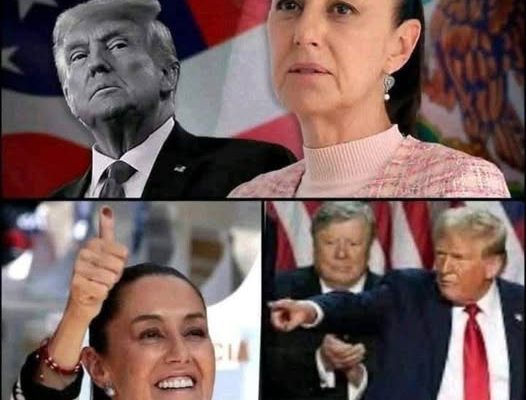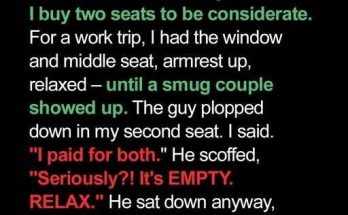
World leaders responded to President Donald Trump’s announcement on Saturday regarding the U.S. execution of a “very successful attack” on three nuclear sites in Iran, including Fordo.
“This is an HISTORIC MOMENT FOR THE UNITED STATES OF AMERICA, ISRAEL, AND THE WORLD. IRAN MUST NOW AGREE TO END THIS WAR,” Trump stated on Truth Social.
Here’s how the world reacted following the attack.
Iranian Foreign Minister Abbas Araghchi expressed in a statement on X that his country “reserves all options” in retaliation to the attack.
“The events this morning are outrageous and will have everlasting consequences,” Araghchi remarked. “Every member of the UN should be alarmed by this extremely dangerous, lawless, and criminal behavior. In line with the UN Charter and its provisions permitting a legitimate response in self-defense, Iran reserves all options to protect its sovereignty, interests, and citizens.”
Araghchi further stated that the assaults on “Iran’s peaceful nuclear installations” by the U.S. constituted “a serious violation of the UN Charter, international law, and the NPT.”
Israeli Prime Minister Benjamin Netanyahu remarked that “Trump’s bold decision will change history.” Speaking shortly after the attack, Netanyahu noted, “President Trump and I frequently say: ‘Peace through strength.’ Strength must come first, followed by peace. And this evening, Donald Trump and the United States demonstrated considerable strength.”
In the meantime, China vehemently condemned the U.S. attack on Iran and on nuclear facilities overseen by the International Atomic Energy Agency, as stated by the Chinese foreign ministry on Sunday.
The action significantly contravenes the United Nations Charter and exacerbates tensions in the Middle East, as stated by the ministry on its website.China has called on the conflicting parties, particularly Israel, to halt their attacks immediately and to initiate dialogue and negotiations, according to the ministry’s statement.
In a separate context, United Nations Secretary-General Antonio Guterres cautioned that the U.S. strikes on Iran signify a perilous escalation in an already unstable region, which poses a substantial threat to global peace and security.
“There is an increasing risk that this conflict could swiftly spiral out of control – leading to catastrophic outcomes for civilians, the region, and the world,” Guterres remarked in a statement reported by Reuters.
“At this critical juncture, it is essential to prevent a descent into chaos. There is no military resolution. The sole way forward is through diplomacy. The only hope lies in peace,” he added.
The European Union’s chief diplomat, Kaja Kallas, urged “all parties to de-escalate, return to the negotiating table, and avert further escalation,” while emphasizing that Iran must not be allowed to develop nuclear weapons. She mentioned that EU foreign ministers will convene to discuss the situation in Iran on Monday.
Within the Middle East, the Saudi Arabian ministry of foreign affairs — a regional ally of the U.S., which resumed relations with Iran in March 2023 after a seven-year diplomatic estrangement — expressed that it is monitoring developments in “sisterly” Iran with “great concern.”
Yemen’s Houthi militant group, traditionally supported by Tehran, condemned the U.S.′ “blatant aggression” against Iran in a statement translated by Google and disseminated by the Yemeni News Agency (Saba).
The presidency of Lebanon, which is significantly influenced by the Hezbollah group that also receives support from Iran and has been engaged in exchanges of fire with Israel, issued a statement translated by Google, asserting that “the bombing of Iranian nuclear facilities raises fears of an escalation of tensions that could threaten security and stability in multiple regions and countries” and called for restraint.
In Europe, U.K. Prime Minister Keir Starmer remarked that the situation in the Middle East “remains volatile and stability in the region is a priority,” urging Tehran to resume negotiations and pursue a diplomatic resolution. Recently, the U.K., France, and Germany have been striving to de-escalate tensions through rapprochement with Tehran.
In what appears to be a response, Iran’s Araghchi later stated, “to Britain and the EU High Representative, it is Iran that must ‘return’ to the table. However, how can Iran return to something it never departed from, especially after it was destroyed?”
Dmitry Medvedev, a senior security official and former president of Russia, questioned on Sunday the likelihood of Trump winning a Nobel Peace Prize despite his recent nomination, stating that the White House leader “who came as a peacemaker president, initiated a new war for the United States” in a post on Telegram translated by Google.
Japan’s Prime Minister Shigeru Ishiba informed reporters on Sunday that it is “paramount to calm the situation down soon,” according to the Japanese news outlet Jiji. He added, “Iran’s nuclear development must be blocked,” while refraining from endorsing the U.S. actions and indicating that his government will thoroughly discuss the developments.
Venezuela’s Minister of Foreign Affairs Yvan Gil denounced the attacks in a message on Telegram: “Venezuela Condemns U.S. Military Aggression Against Iran and Demands an Immediate Cessation of Hostilities. The Bolivarian Republic of Venezuela firmly and categorically condemns the bombing executed by the United States military, at the behest of the State of Israel, against nuclear facilities in the Islamic Republic of Iran, including Fordow, Natanz,
Cuba’s President Miguel Diaz-Canel has also denounced the attacks on the social media platform X, stating: “We strongly condemn the US bombing of Iran’s nuclear facilities, which represents a perilous escalation of the conflict in the Middle East. This aggression significantly breaches the UN Charter and international law, plunging humanity into a crisis with irreversible consequences.”
Mexico’s Ministry of Foreign Affairs has called for diplomatic dialogue in a post on X: “The ministry urgently advocates for diplomatic dialogue aimed at achieving peace among the parties involved in the Middle East conflict. In alignment with our constitutional principles of foreign policy and our nation’s pacifist beliefs, we reiterate our appeal to de-escalate tensions in the region. The restoration of peaceful coexistence among the states in the region is of utmost importance.”
A representative of the Australian government has also urged for de-escalation, as reported by Reuters: “We have made it clear that Iran’s nuclear and ballistic missile program poses a threat to international peace and security. We acknowledge the US President’s assertion that now is the moment for peace. The security situation in the region remains highly unstable. We continue to advocate for de-escalation, dialogue, and diplomacy.”
Responses from around the world are gradually emerging as leaders assess the ramifications of the attack.
South Korea’s National Security Council met on Sunday, with advisor Wi Sung-lac urging “relevant ministries to mitigate the impact of the recent series of developments in the Middle,” according to comments from a presidential spokesperson reported by South Korea news agency Yonhap.
Pope Leo emphasized that the international community must endeavor to prevent war that threatens to create an “irreparable abyss,” asserting that diplomacy should replace conflict.
“Each individual within the global community bears a moral obligation: to prevent the calamity of war from evolving into an irreversible chasm,” stated Pope Leo during his weekly prayer with pilgrims.
“No military triumph can make up for the anguish of mothers, the terror experienced by children, or the future that has been taken away. May diplomacy bring an end to the sounds of weaponry, and may nations pursue their destinies through peaceful initiatives rather than through violence and bloody confrontations,” he further remarked.


